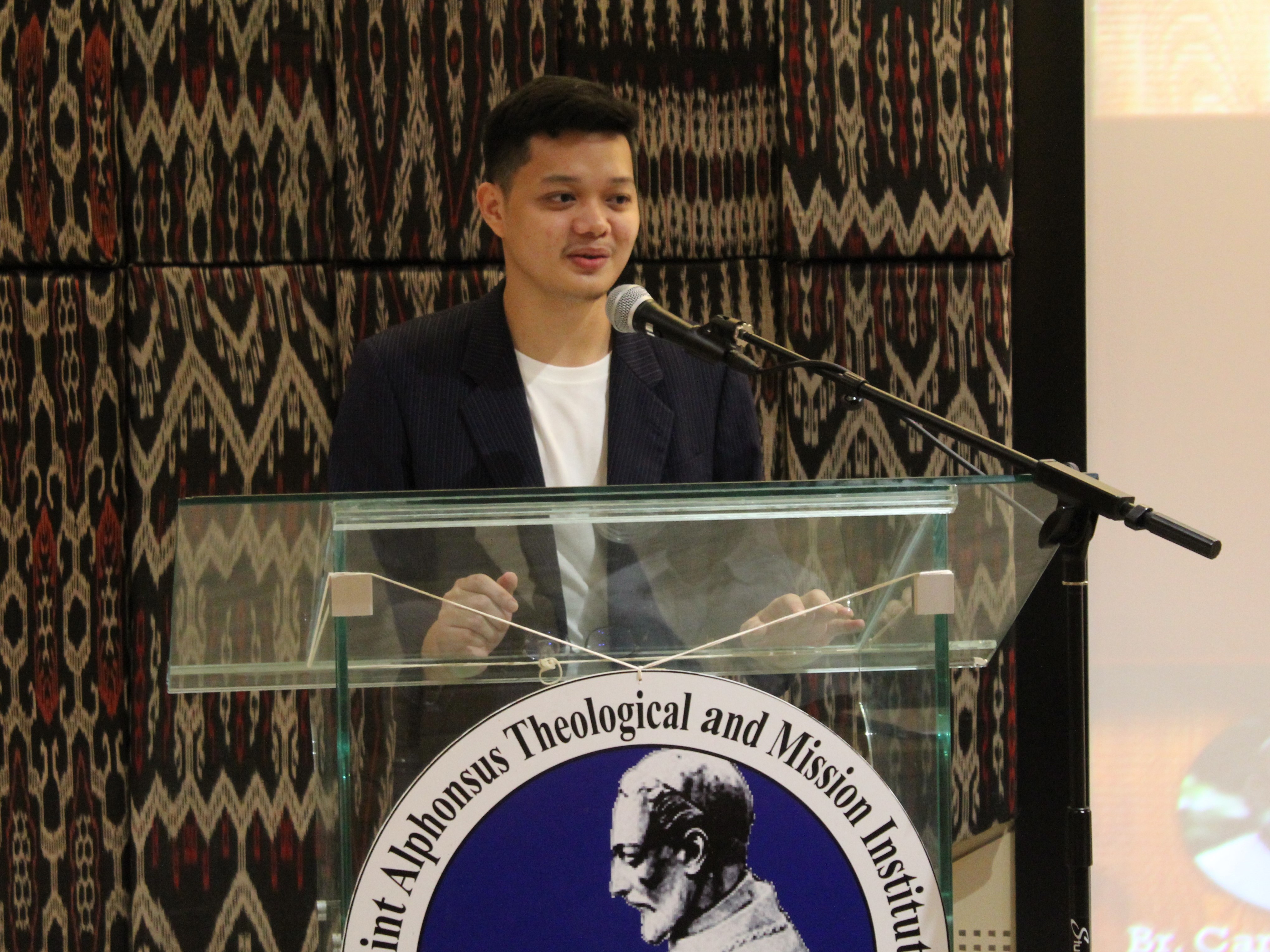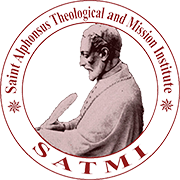Missiological Paper Presentation | Fourth Year Theology Students
______________________
Br. Tyrone Senires, CSsR entitled: “The Parable of the Durian: An Aid in Unravelling Icon Mission Insights”
Mentor: Sr. Miriam Alejandrino, OSB
“Being inspired by the presence and abundance of the durian during the Icon Mission, it is utilized as a parable to aid in drawing insights. The parable of the durian demonstrates the significant impact of giving value to the culture of the local people, specifically in accepting how the people interact with visitors in their communities. Respect for the local culture is the direction of the mission of the church. It is embodied in the Icon Mission in Maco through respect for local traditions, community empowerment, and effective communications.” – Excerpt from the paper of Br. Tyrone
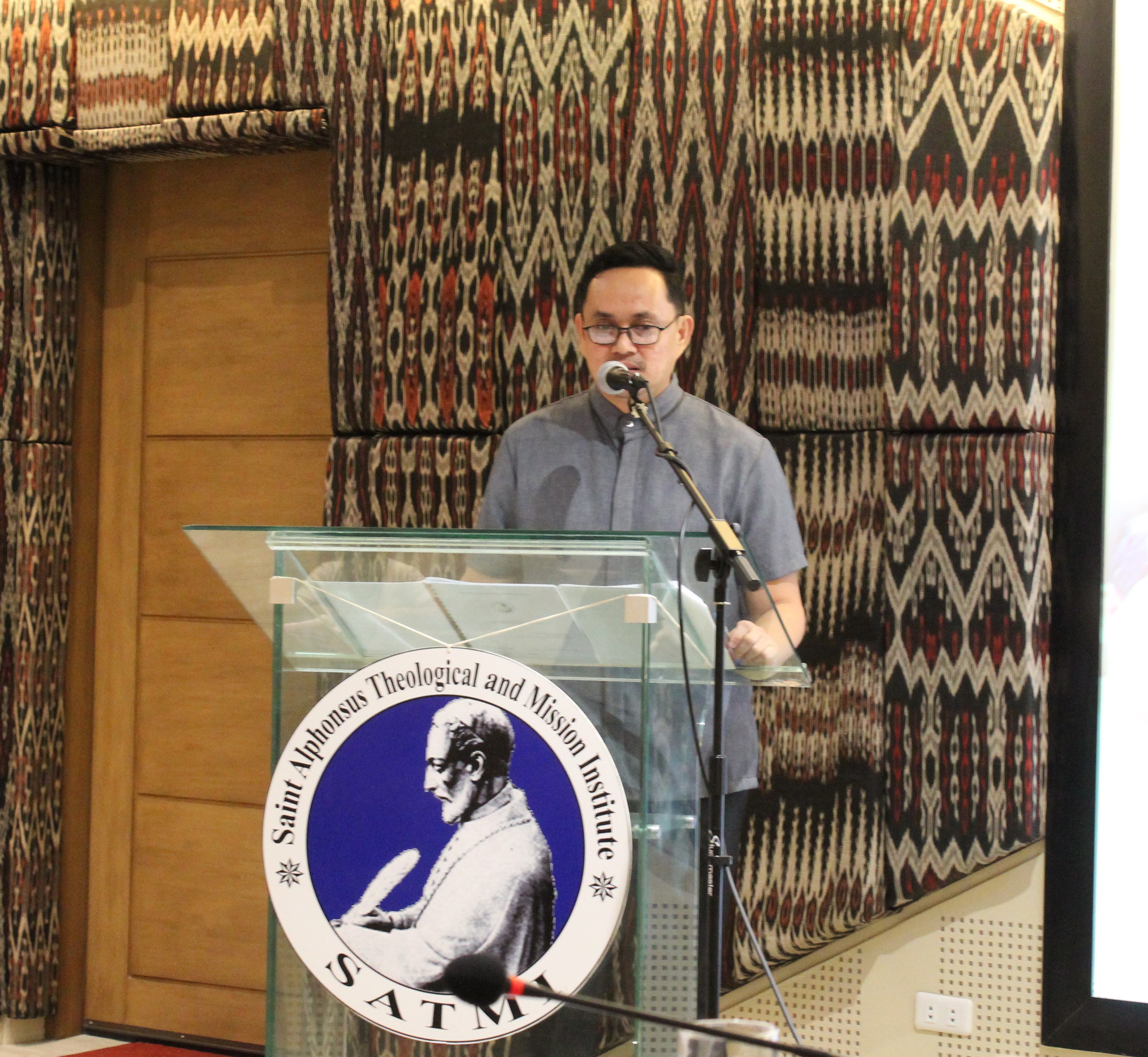
______________________
Br. Eric Lastima, SDV entitled: “The Spiritual and Human Formation of BEC Leaders in Malapoc Norte Mission Station”
Mentor: Fr. Andres Aragon , Jr., SDV
“As baptized Christians, we are called to follow the footsteps of our Lord Jesus Christ as His hands and feet to this new generation. It is important that we strive for excellence in all that we do, as mediocrity has no room for us Christians. One way of showing our participation in the Church is to collaborate and follow the desire of our pastors and our shepherds because, in doing so, we follow and observe our identity as Christians. As followers of Christ, we are called to be the living presence of Christ living in us in the world. We should not let our own desires and pride hinder us from following the command of our pastor. When we do so, we risk causing divisions and conflicts within our community, which can eventually lead to the destruction of our missions. Instead, let us strive to follow the example of our Lord and work together to build a strong and united Christian community.” – Excerpt from the paper of Br. Eric
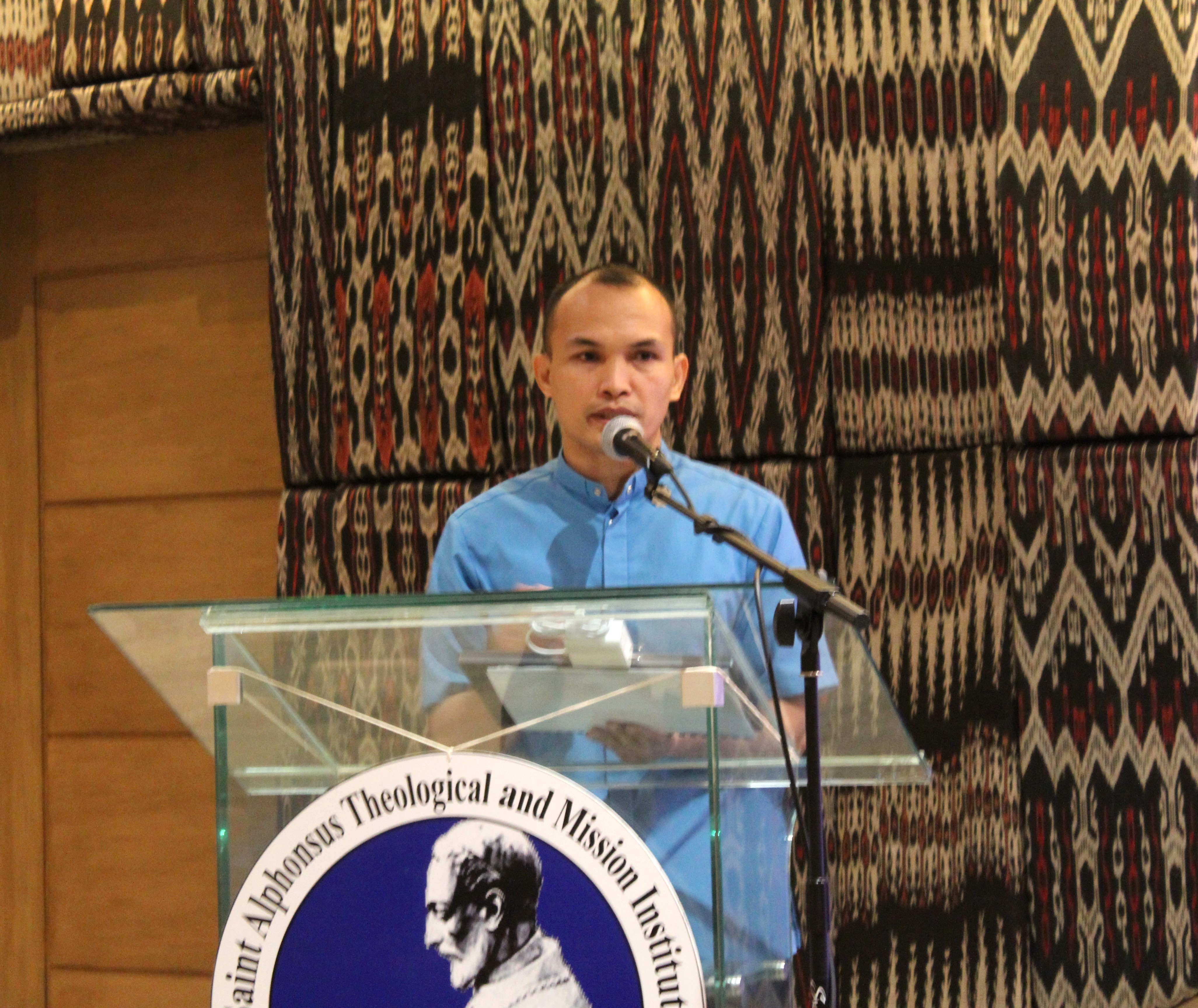
______________________
Br. Kriss Michael Tubog, CSsR entitled: “A Strong Sense of Community and Collectivism as a Means of Discipleship for the Redemptorist Province of Vietnam Under a Communist Regime”
Mentor: Fr. Phanxico Assisi Hoan, CSsR
“The Redemptorists have played a vital role in Vietnam. They have helped those who are poor and marginalized, and they worked to promote reconciliation and healing. The communist idea of community is very different from the biblical and theological definition of a missionary community. A missionary community is grounded in Christian theology and the teachings of Jesus Christ as well as the Great Commission, which is the primary directive to preach the gospel and make disciples of all peoples. As a kind of evangelism and outreach, it places a strong emphasis on communicating the message of love, faith, and salvation to others. As influenced by the writings of Karl Marx and Friedrich Engels, communist ideology focuses primarily on social and economic issues, promoting the elimination of class inequalities, shared ownership of the means of production, and the creation of a society devoid of classes. Communist movements may have a sense of community, but it is often based on a shared understanding of class conflict and shared objectives for social, economic, and political change. In an effort to meet the material and spiritual needs of the people they serve, missionary communities frequently participate in philanthropic and humanitarian endeavors. The framework of religious service and compassion drives these efforts. Communist communities may also take part in social and economic endeavors, but they frequently emphasize socio-political reform with a more secular and materialistic perspective. A missionary community’s values and views are also influenced by religious concepts and texts, which frequently place an emphasis on love, forgiveness, and salvation by believing in a higher power. Communist communities, on the other hand, are often built on materialistic and political tenets relating to class conflict and societal change. In practical terms, this could mean that a Christian community gathers to provide food for the underprivileged and homeless this society is built on love and service. In contrast to a communist government that may have its citizen’s work on collective farms, this community is an illustration of one that operates through force and domination. The Redemptorists’ story is a testament to the power of community and collectivism. It shows us that, in spite of persecution, through God’s grace, it is possible to survive and thrive if we work together and never give up hope. Indeed, the Redemptorist Province of Vietnam is a story of courage, resilience, hope, and the power of faith.” – Excerpt from the paper of Br. KM
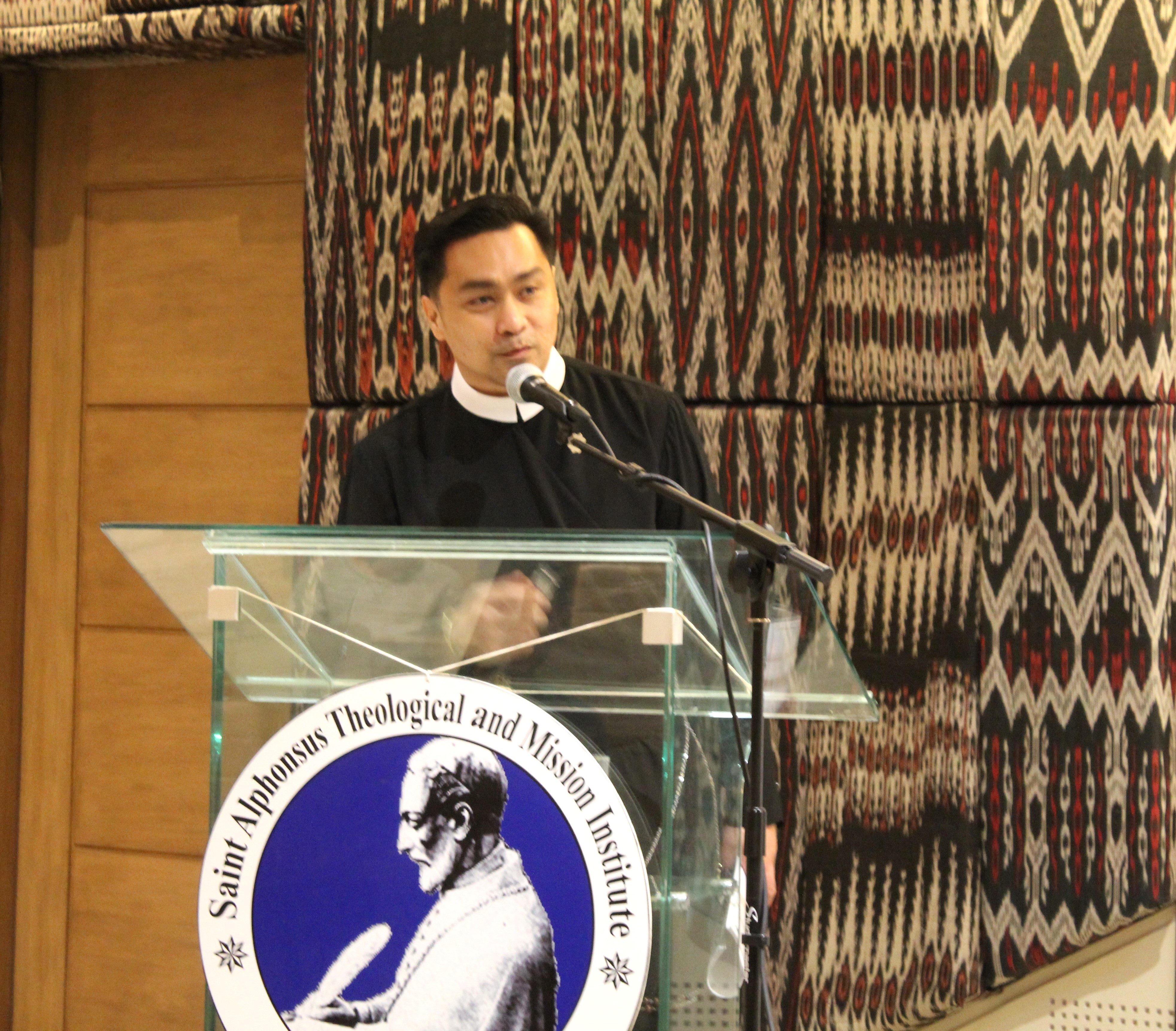
______________________
Br. Emmanuel De Guzman, CSsR entitled: “O-MUE-CHO-PE:! (handshake) Mission Experience with the Karen Hill Tribe: Enriching our Understanding of Synodal Way in the Church”
Mentor: Prof. Lunar Fayloga
“Let us become workers of peace, beckons of hope, and stewards of God’s manifold graces. These are the same challenges that the researcher gives to himself that all those lessons that he had learned from the Sgaw Karen or Pgaz K’ Nyau in his mission immersion program would put into practice for the rest of his earthly O-mue-cho-pe (walking) with all the Karens (peoples in margins and peripheries) of this cosmos (world). For just as the Karen people, may we not see ourselves as an island and not look at ourselves as superior over our fellow sisters and brothers, with nature and its natural resources, and to God. Let us go out and continue the handshaking with all the people, especially those living at the edge, margins, and displaced in our society and the Church. Let us continue doing the O-mue-cho-pe with all this world’s Karens (in the margins)! We continue to sail on and walk together to advance the Kingdom of God of peace, justice, and love.” – Excerpt from the paper of Br. Emmanuel
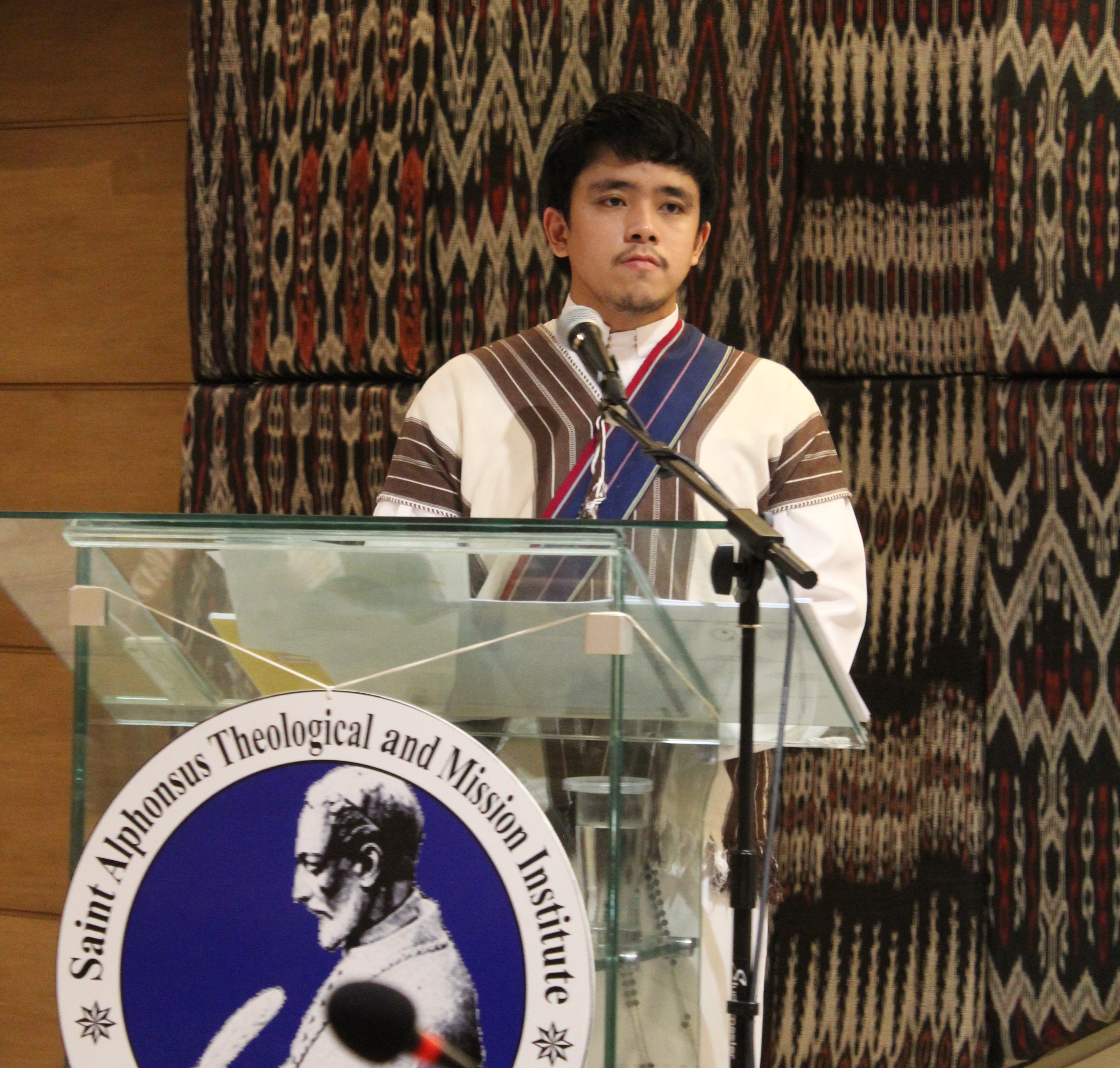
______________________
Br. Nouy Khamhou, CSsR entitled: “The Laotian Baci Ceremony: A Manifestation of Laotian Faith Identity and Sense of Mission”
Mentor: Fr. Neil Badillo, OFM
“The Laotian Baci ceremony is a manifestation of faith and a sense of mission for the Laotian people. On Faith, the Baci ceremony is a deeply religious event. The Laotian people believe that the Baci is a gift from God, and that the ceremony is a way to thank God for the blessings of life. The Baci ceremony is also a way to express the Laotian people’s faith in the power of community and solidarity. For the Sense of mission, the Baci ceremony is a reminder of the Laotian people’s shared history and culture. It is also a time to affirm the Laotian people’s commitment to building a better future for all. The Baci ceremony is a source of strength and resilience for the Laotian people, and it helps them to maintain their sense of identity and purpose in the face of challenges. And the Baci ceremony is also a way for the Laotian people to share their faith and culture with others. The Baci ceremony is often performed for visitors to Laos, and it is a way for the Laotian people to welcome visitors into their community and to share their way of life.” – Excerpt from the paper of Br. Nouy
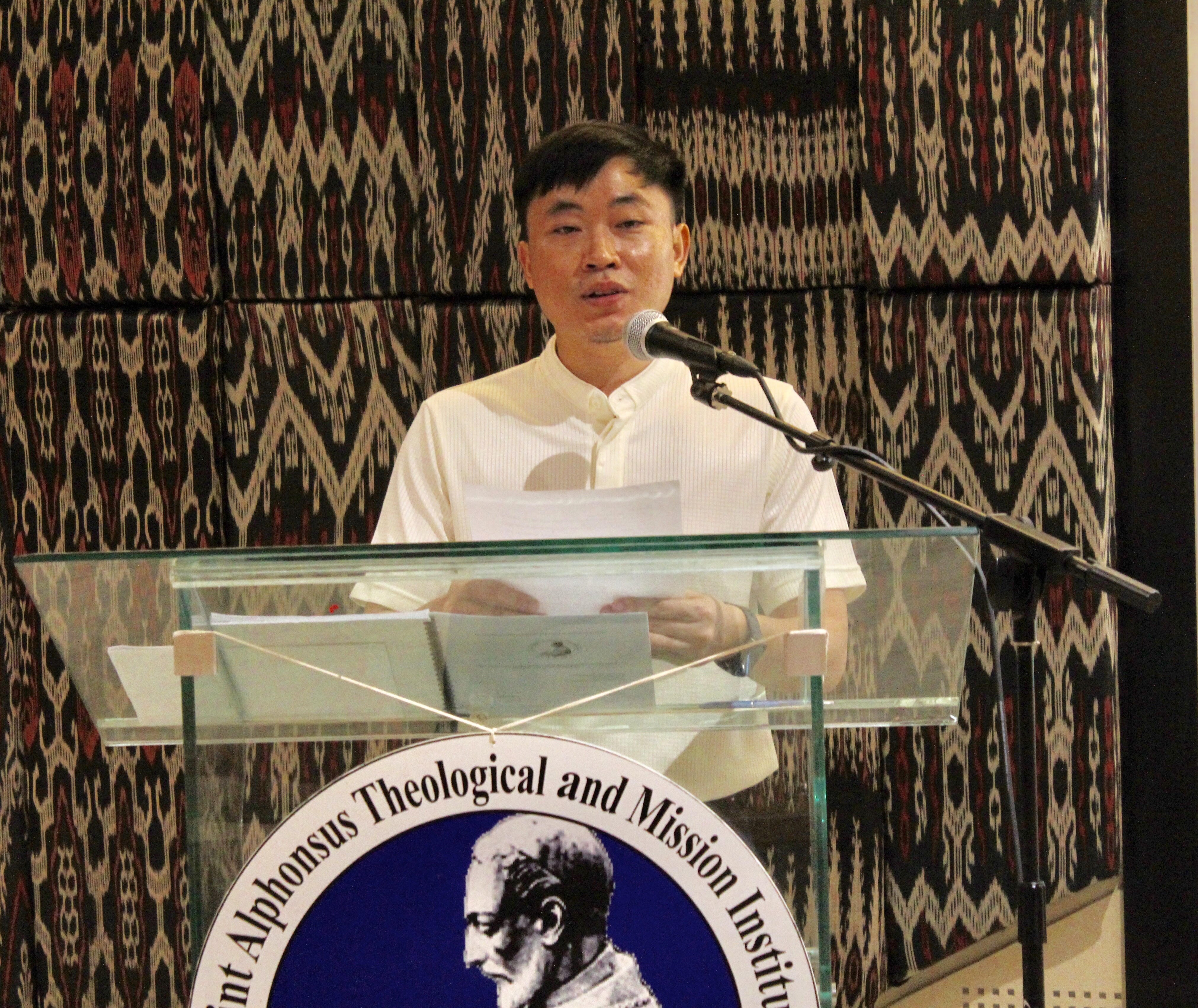
______________________
Br. Jhon Mark Aves, CSsR entitled: “KUN MAUPAY MAN IT PANAHON: A Decade After the Storm the Journey of Faith and Healing of the People in CRS Dreamville”
Mentor: Fr. Neil Badillo, OFM
“The CRS Dreamville mission allowed me to participate in God’s mission–to address the hopelessness people felt and to realize that there is always a new beginning in God. Nevertheless, there is one thing they have never lost, and that is no other than their faith in God. Hence, they dare rise and face the future with hope. We celebrate our faith in God, for this gives us the courage and hope to face the storms and challenges of life. Like what they say in Waray “Kun maupay man it panahon” which means “if the weather is fine” or not, the people will never forget the memories of Typhoon Yolanda.” – Excerpt from the paper of Br. Marco
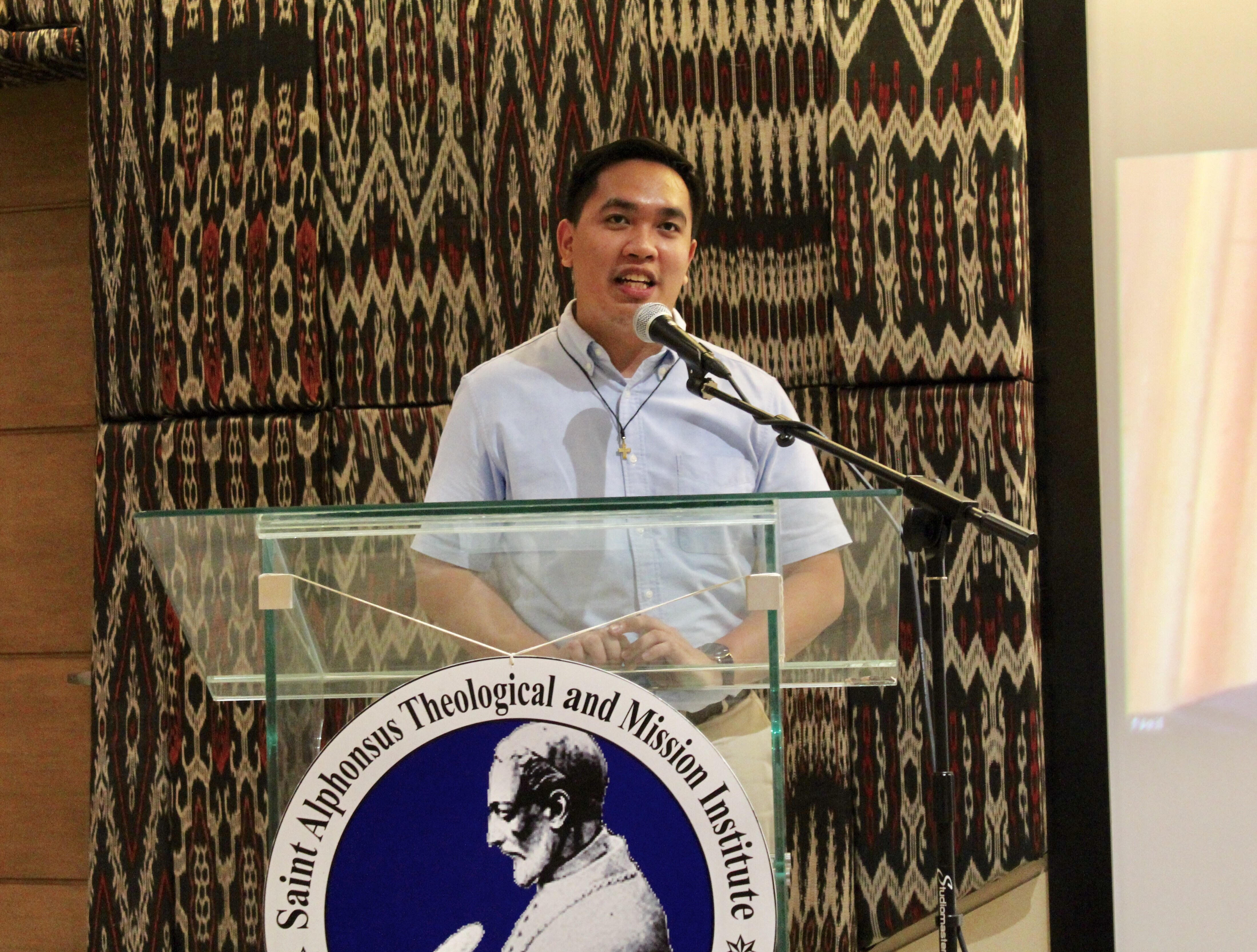
______________________
Br. Rey Dian Sioco, CSsR entitled: “Và ò cùng chúng con (And He Stayed with us)”: Redemptorist Mission among the Bahnar people in Mang Yang”
Mentor: Fr. Neil Badillo, OFM
“Through the witnessing of the missionaries, Jesus not only touched the cloak of the Bahnar people, but he even clothed himself with the identity of Bahnar people. The very life of the missionaries in Mang Yang incarnated Christ’s presence in the life of the Bahnar people. The witnessing of the missionaries was able to manifest the message and person of God dwelling among the Bahnar people. Their lives, which are fully immersed in the tribe’s life, became a vehicle of Christ’s tangible expression of embracing fully the Bahnar people as his own. Witnessing is more than translating the scriptures in the dialect of the Bahnar and integrating significant cultural practices into the liturgical celebrations. The Bahnar people experienced the warm embrace of Christ through the presence of the missonaries. In this way, the crucified, naked, and wounded man on the cross is able to touch and capture the hearts of these Bahnar people.” – Excerpt from the paper of Br. Rey
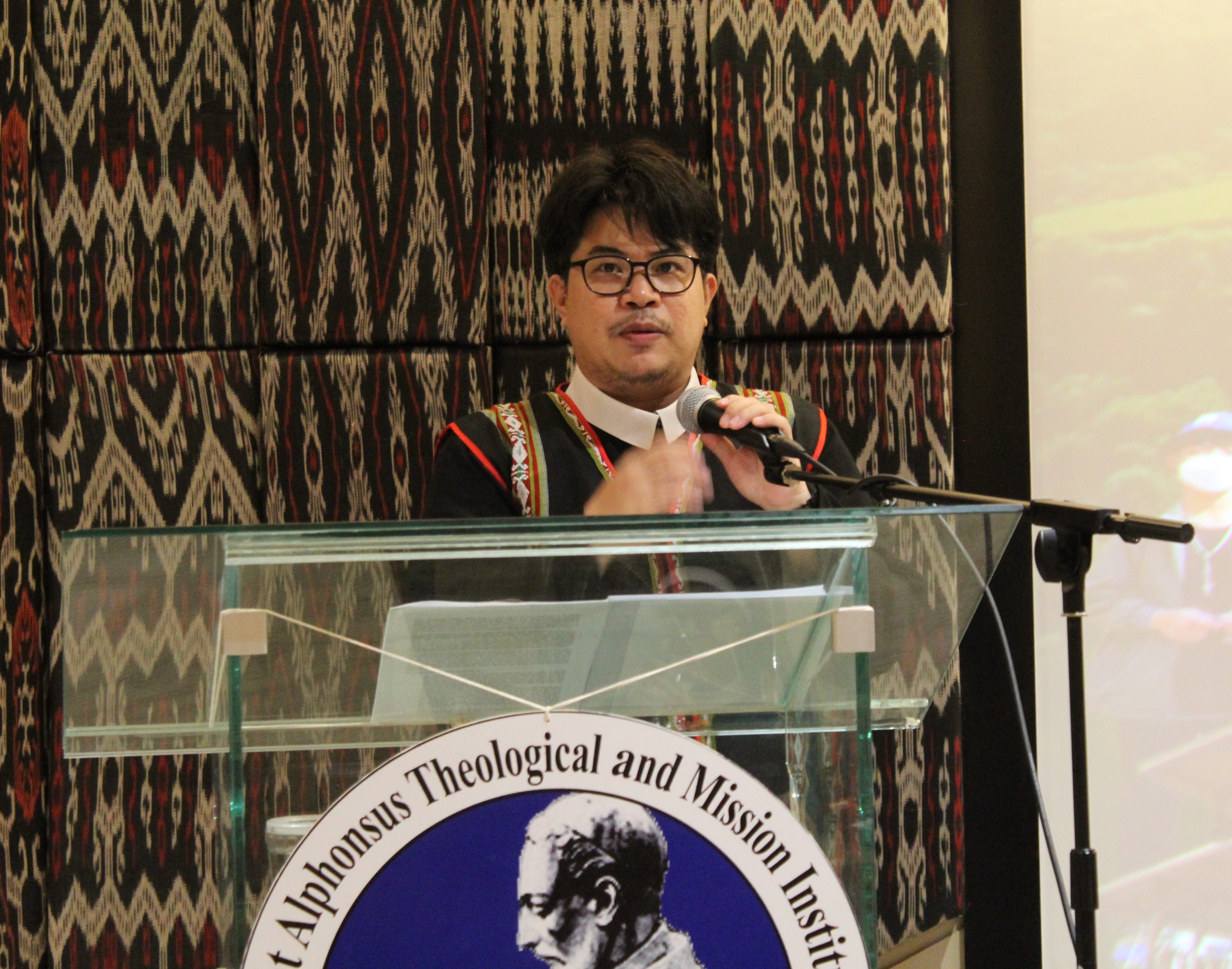
______________________
Synthesis Proposal Presentation | Fifth Year Theology Students
______________________
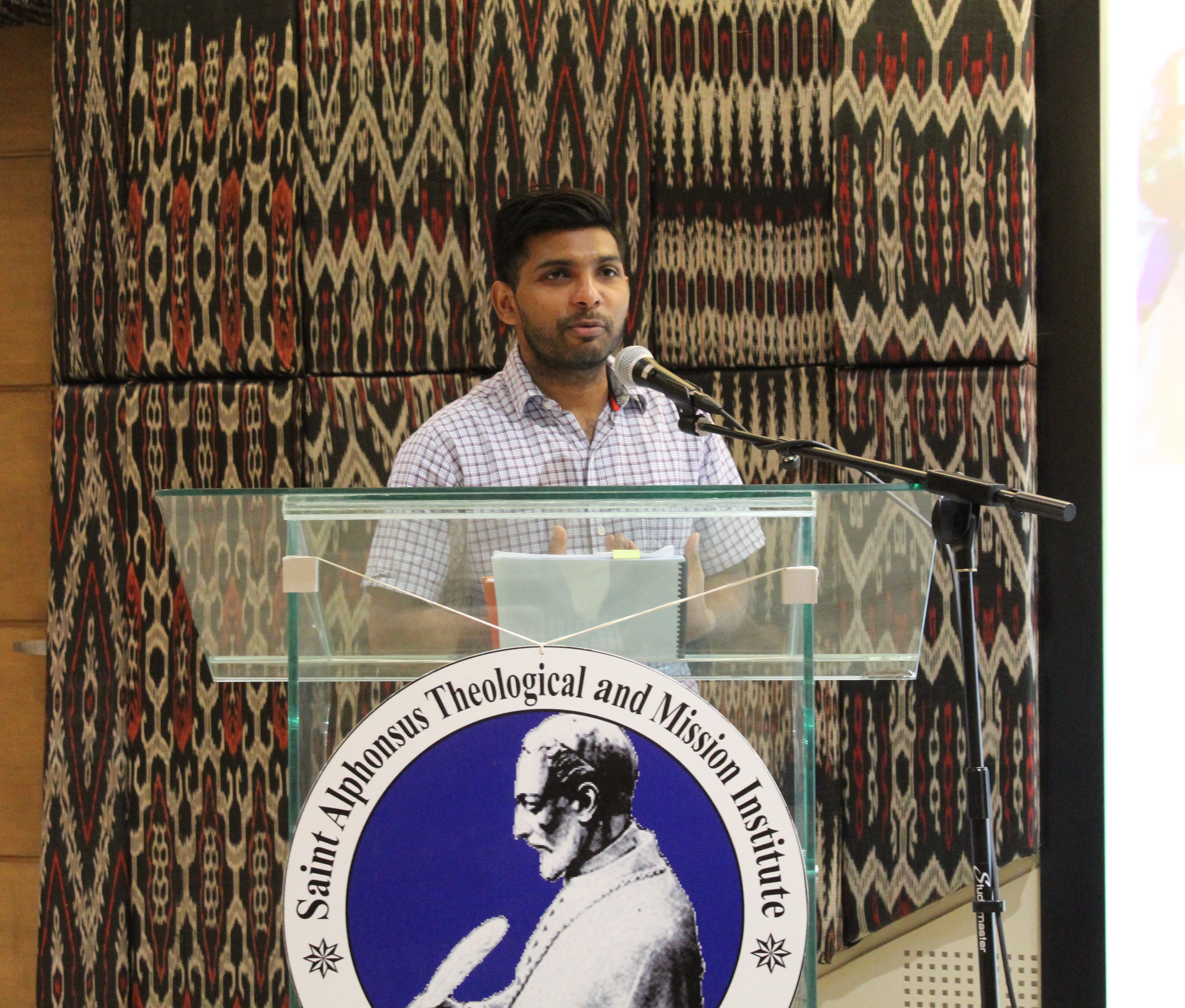
Br. Pelix Fernando, CSsR entitled: “Internalizing Faith in an Interreligious Community: A Call for a Synodal Journey”
Mentor: Sr. Miriam Alejandrino, OSB
“Pope Francis calls for a fundamental paradigm change in theology in his most recent Apostolic Letter, “On the promotion of theology.” As He says, theological thought is therefore summoned to a paradigm shift, a turning point, or a “courageous cultural revolution”. According to the researcher, the goal of this research paper is to become a living example of what the Pope calls “fundamentally contextual theology.” It aims to read and interpret the Gospel within the conditions of daily life, spanning different geographical, social, and cultural contexts. Sri Lanka serves as the backdrop for his reflecting. The study focuses on the inner faith of Sri Lankan tea plantation workers in Balangoda who deal with issues like inadequate policy assistance, discrimination based on religion, and unfavorable working conditions. The researcher seeks to foster a more welcoming community that values diversity and upholds everyone’s right to practice their religion in accordance with their views by addressing these issues through research and analysis.” – Excerpt from the paper of Br. Pelix
______________________
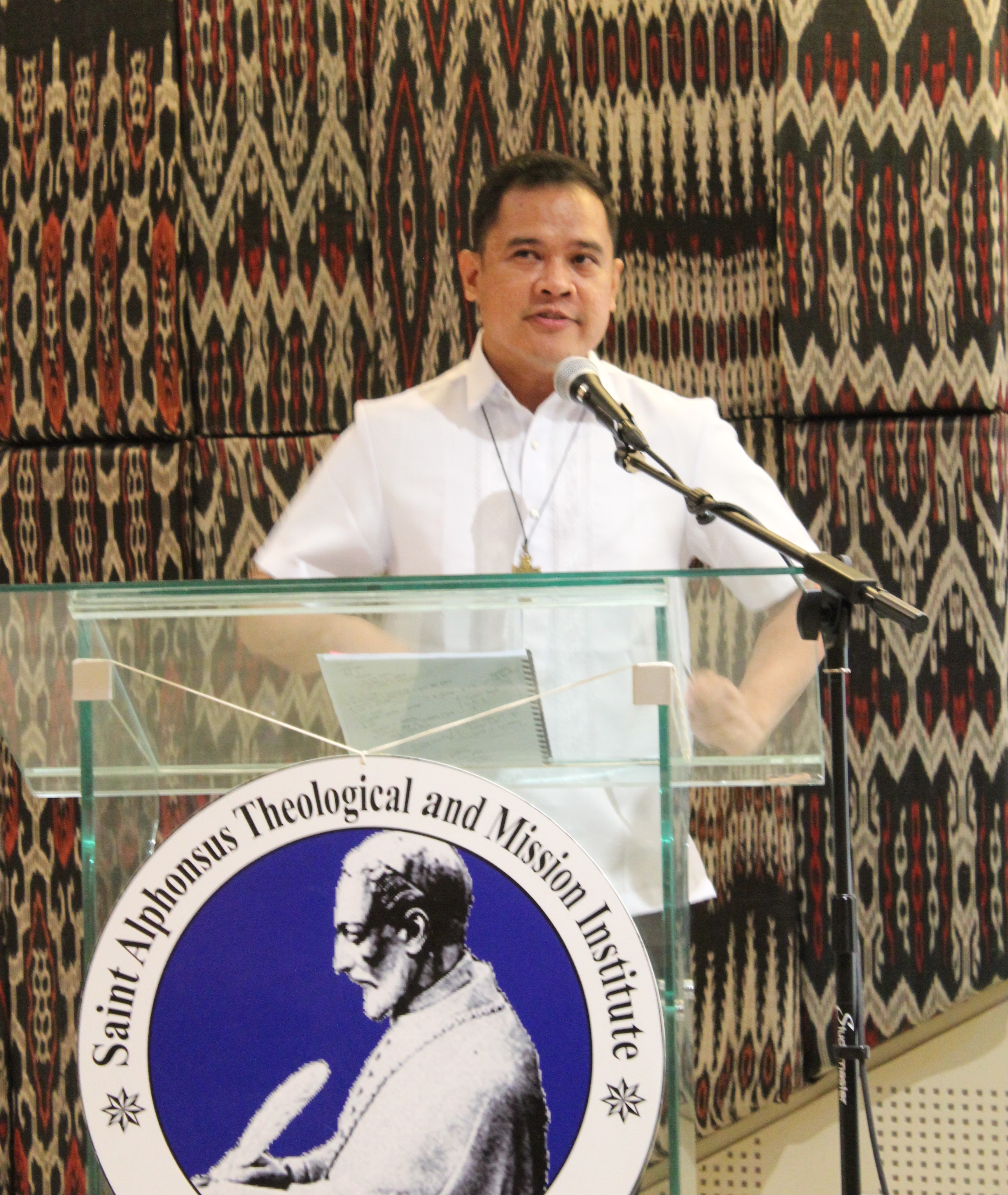
Br. Dario Tupas, CSsR entitled: “Community Pantries as Locus of Encounter: Towards Synodal Church in the Post-Pandemic Context”
Mentor: Fr. Edilberto Cepe, CSsR
“As a way of practice, community pantries embody synodality, a Catholic
______________________
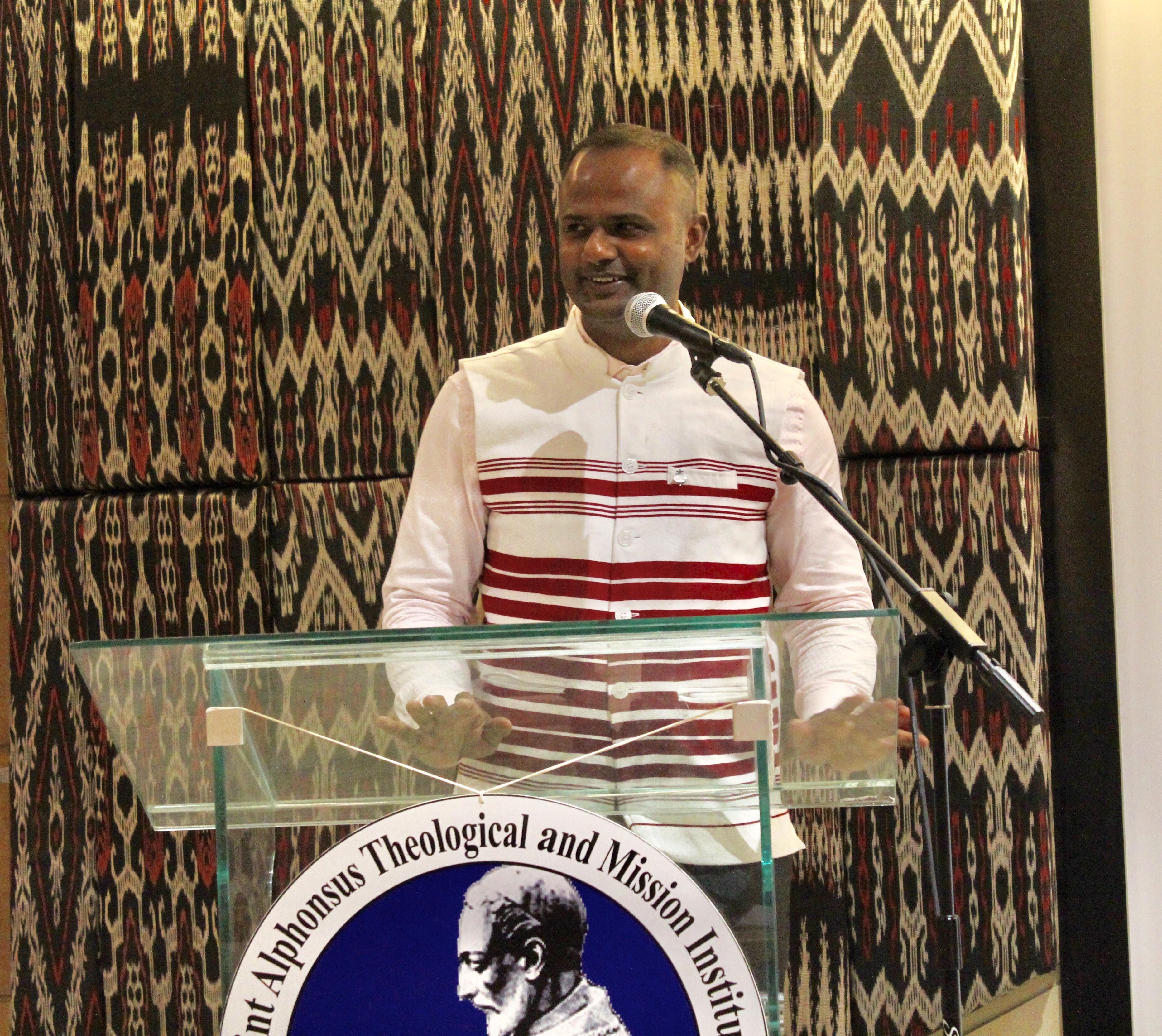
Br. Anthony Charles Prabhu, CSsR entitled: “The Chotanagpur Migrants: A Missiological Exploration of Theology of Migration”
Mentor: Mr. Roawie Quimba, PhD
“I was sent to India for my pastoral immersion year. Little did I know that this year would turn out to be ‘the formative’ year of my initial formation and my life’s most fruitful & direct encounter with the poor and marginalized people. With the help of the Redemptorists confreres from the unit of Majella in India, I came in direct contact with the Chhotanagpur migrants of India. As a way of post processing of my pastoral year and to reminisce the experiences, with the guidance of my mentor, i was able to write this missiological paper titled ‘The Chhotanagpur Migrants: A Missiological Exploration of the Theology of Migration’. This paper can be seen as a framework that aims to comprehend and address the complex phenomena of Chhotanagpur migration within the context of Christianity and beyond. This perspective is grounded in the notion that every Chhotanapgur migrant is inherently valuable and deserving of honor and esteem, irrespective of their immigration status, owing to the belief that all humans are made in the likeness of a divine entity. Interacting with these poor and marginalized migrants not only humbled me but enabled me to learn and see life from their shoes. What it is like to be a daily wage labor, a domestic helper, caregiver, a construction worker, a toy assembler, making electrical switches, a painter and mixer repairer. I’m very grateful for this grace and beyond words to thanks everyone who made this experience possible.” – Excerpt from the paper of Br. Anthony
______________________
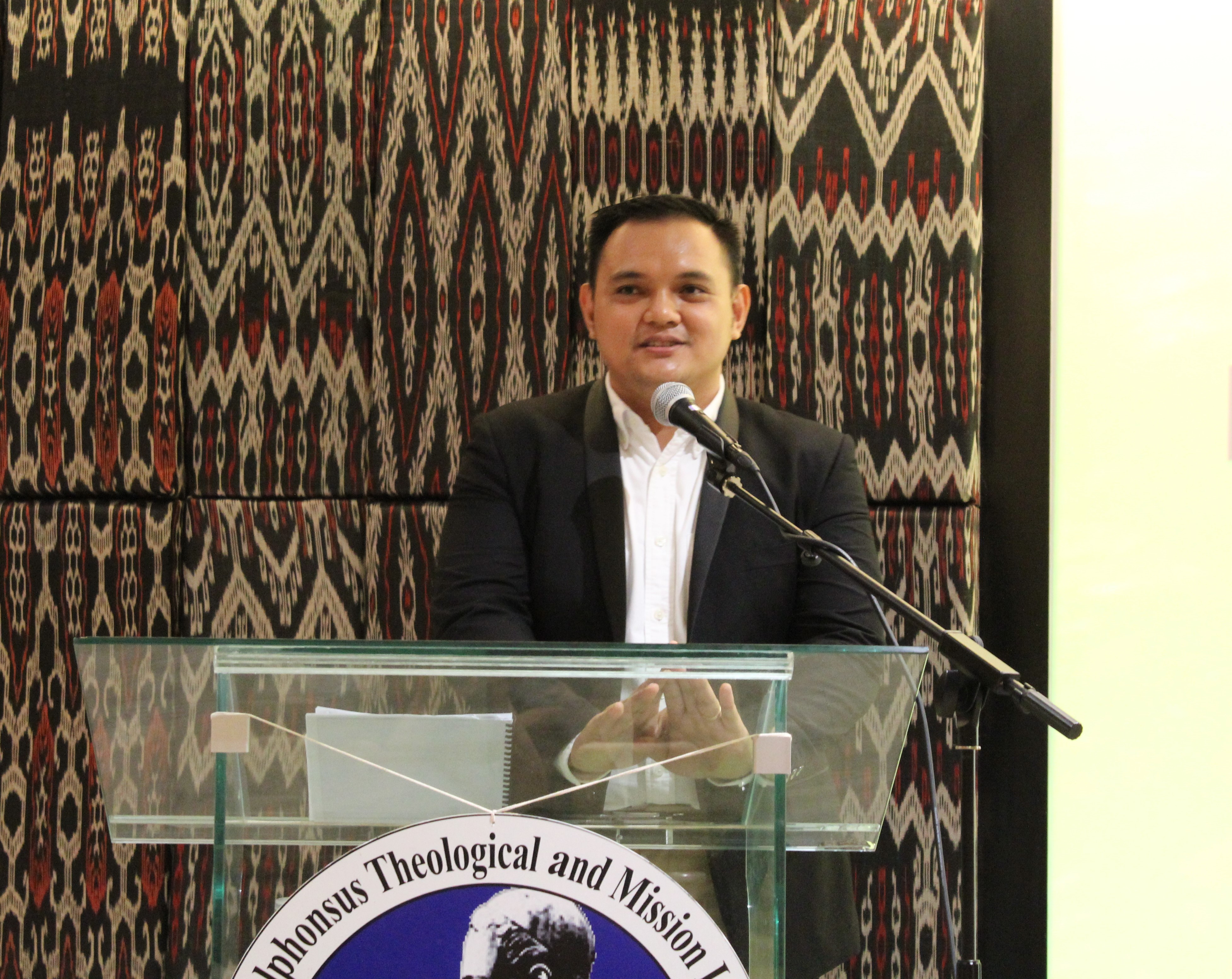
Br. Rey Julo Biliran, CSsR entitled: “Interfacing Theology and Liminality: Towards a Liminal-Synodal Church in Praxis”
Mentor: Br. Karl Gaspar, CSsR
“This undertaking is done while the Synod on Synodality is still ongoing. With this, this is a reflection of an ongoing reflection on the Church. Hence, this is my way of journeying with the synodal process…It is the utmost hope that the theological reflection and insight born in this undertaking will help the Church deeply appreciate its identity as a people of God in its continual journey towards becoming what God is asking her to be. Moreover, this undertaking hopes that through its humble theological reflection and insight, it will inspire the Church to become more participative in the process that the holy father is asking us to embark into, which may not only be a process for today or until 2024 but a process that may be used or that we will be in the future. He said, “It is that path that God wants the Church to take in the third millennium.” – Excerpt from the paper of Br. Julo
______________________
Final Synthesis Paper Presentation | Fifth Year Theology Student
______________________
Bretton Jacob Badajos entitled: “Re-appropriating SIMBAKO INTAWON: An Experiment in Filipino Contextual Theology”
Mentor: Br. Karl Gaspar, CSsR
“Simbako intawon is a desperate call for God’s help and a unique expression of reaching out to the divine. By appropriating once more the meaning behind the said expression and guided by a contextual theology, we may be able to appreciate such local interjection or an indigenous expression better. As Filipino Catholics, we must help our people re-interpret simbako intawon not just as an expression of dispelling fear or an appeal for security but as an expression of utter confidence in God’s benevolence. By re-appropriating simbako intawon into a Christian understanding, Filipino Christians may use such an ordinary expression for solace, to cope with crisis as we face life’s demands and feel God’s concern in times of desperate need, as the simbako intawon exemplifies.” – Excerpt from the paper of Bretton
